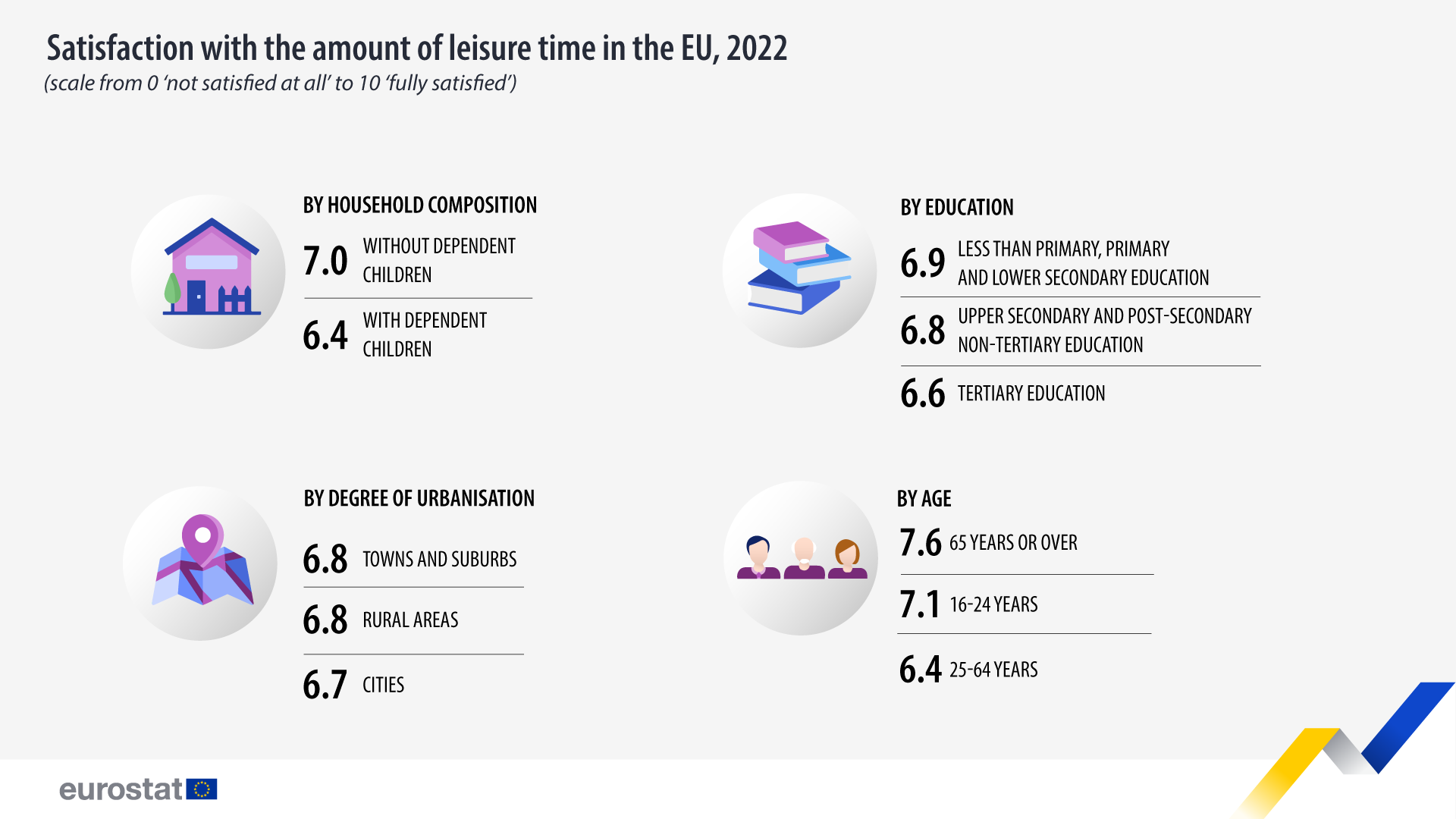Satisfaction with amount of leisure time stable in the EU
There were 11 EU countries which scored 7.0 points or more on overall satisfaction with the amount of leisure time. The highest scores were in Finland (7.7), Denmark and Slovenia (both 7.5). The lowest scores were reported in Greece (5.5), Bulgaria (5.7) and Cyprus (6.2).
Source dataset: ilc_pw01b
Households without children, people with lower secondary education and older adults more satisfied with the amount of leisure time
Data show that in 2022, EU households without dependent children were more satisfied with their amount of leisure time (7.0 points) than households with dependent children (6.4).
Examining satisfaction with the amount of leisure time based on educational attainment reveals an interesting pattern: the more educated (levels 5-8 of the International standard classification of education (ISCED)), the less satisfied people declared to be (6.6 points).
Source datasets: ilc_pw02b and ilc_pw01b
People with lower secondary education (levels 0-2) recorded a higher satisfaction level (6.9), followed by those with upper secondary and post-secondary non-tertiary education (levels 3-4), with 6.8 points.
In terms of age, the highest rate of satisfaction with the amount of leisure time use was registered among older people (65 years and older), with 7.6 points, followed by the youngest group (16-24 years), with 7.1. People aged 25 to 64 were the least satisfied with their amount of leisure time (6.4).
Both in 2018 and 2022, men and women have the same level of satisfaction with the amount of their leisure time, averaging 6.8.
Source: Eurostat
Legal Notice: The information in this article is intended for information purposes only. It is not intended for professional information purposes specific to a person or an institution. Every institution has different requirements because of its own circumstances even though they bear a resemblance to each other. Consequently, it is your interest to consult on an expert before taking a decision based on information stated in this article and putting into practice. Neither Karen Audit nor related person or institutions are not responsible for any damages or losses that might occur in consequence of the use of the information in this article by private or formal, real or legal person and institutions.







